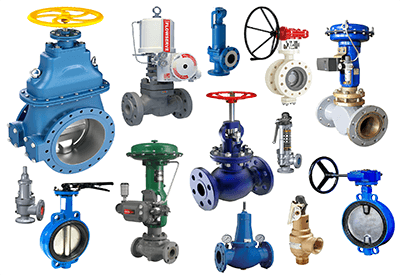The journey of an industrial valves manufacturer is a complex and fascinating process. From the initial design stages to the final quality checks, each step plays a crucial role in ensuring that the valves meet stringent industrial standards. In this article, we will take you behind the scenes of this journey, providing an in-depth look at the processes, technologies, and expertise involved in manufacturing high-quality industrial valves.
Understanding Industrial Valves: Types and Applications
Industrial valves are essential components in various industries, including oil and gas, water treatment, chemical processing, and power generation. They are designed to control the flow and pressure of liquids, gases, and slurries within a system. Here are some of the most common types of industrial valves:
- Gate Valves: Used for on/off control, these valves are ideal for applications requiring minimal flow resistance.
- Globe Valves: Perfect for regulating flow, globe valves offer excellent throttling capabilities.
- Ball Valves: Known for their durability and reliability, ball valves provide tight sealing with low torque.
- Butterfly Valves: These valves are compact, lightweight, and suitable for large volume water applications.
- Check Valves: Designed to prevent backflow, check valves are critical for maintaining system integrity.
- Pressure Relief Valves: Essential for safety, these valves release excess pressure from a system.
The Design Phase: Where Innovation Begins
The journey of an industrial valves manufacturer begins with the design phase. During this stage, our engineers work closely with clients to understand their specific needs and requirements. Using advanced CAD software, we create detailed designs and simulations to ensure that the valves will perform optimally under various conditions. Key considerations during the design phase include:
- Material Selection: Choosing the right materials is crucial for valve performance and longevity. Common materials include stainless steel, cast iron, brass, and various alloys.
- Flow Dynamics: Engineers analyze flow patterns to minimize turbulence and pressure drop.
- Temperature and Pressure Ratings: Valves must be designed to withstand the operating conditions of their intended application.
- Compliance with Standards: We ensure that all designs meet industry standards and regulations, such as ASME, ANSI, and API.
Prototyping and Testing: Ensuring Precision and Reliability
Once the design is finalized, the next step is prototyping. Prototypes are produced using precision machining and 3D printing technologies. These prototypes undergo rigorous testing to validate their performance and durability. The testing process includes:
- Pressure Testing: Valves are subjected to high-pressure conditions to ensure they do not leak or fail.
- Temperature Testing: We test valves under extreme temperatures to verify their performance.
- Cycle Testing: Valves are repeatedly opened and closed to simulate real-world usage and ensure longevity.
- Material Testing: We conduct tests to confirm that the materials used meet all required specifications.
Manufacturing: From Raw Materials to Finished Products
The manufacturing phase is where the designs and prototypes come to life. This stage involves several critical processes:
Casting and Forging
Casting and forging are the primary methods used to create valve components. Casting involves pouring molten metal into molds to form the desired shapes. Forging, on the other hand, involves shaping metal using compressive forces. Both methods have their advantages, with casting being suitable for complex shapes and forging offering superior strength.
Machining
Precision machining is essential for creating the intricate details and tight tolerances required for industrial valves. CNC machines are used to cut, drill, and shape the components with high accuracy. This ensures that each part fits perfectly and functions as intended.
Assembly
During the assembly process, all the machined components are carefully put together. This step requires skilled technicians who ensure that each valve is assembled correctly and functions smoothly. Proper lubrication and sealing are applied to prevent leaks and ensure long-term reliability.
Quality Control
Quality control is a vital aspect of the manufacturing process. Our quality control team conducts thorough inspections at every stage of production. This includes:
- Dimensional Inspections: Verifying that all components meet specified dimensions and tolerances.
- Hydrostatic Testing: Testing valves under water pressure to check for leaks and structural integrity.
- Functional Testing: Ensuring that valves operate correctly and meet performance standards.
Finishing and Surface Treatment
The final step in the manufacturing process is finishing and surface treatment. This includes cleaning, polishing, and applying protective coatings to the valves. Surface treatments such as galvanizing, anodizing, and painting help protect the valves from corrosion and enhance their durability.
Packaging and Delivery: Ensuring Safe Transit
After the valves have passed all quality checks, they are carefully packaged to prevent damage during transit. Packaging materials are selected based on the type of valve and its destination. We use sturdy crates, protective padding, and moisture-resistant materials to ensure that the valves arrive at their destination in perfect condition.
Customer Support and After-Sales Service
Our commitment to excellence does not end with the delivery of the valves. We provide comprehensive customer support and after-sales service to ensure that our clients are satisfied with their purchase. This includes:
- Installation Assistance: Helping clients with the proper installation of valves to ensure optimal performance.
- Maintenance Tips: Providing guidelines on how to maintain and service the valves to extend their lifespan.
- Troubleshooting Support: Offering assistance in diagnosing and resolving any issues that may arise.
Conclusion: The Commitment to Quality and Innovation
The journey of an industrial valves manufacturer is marked by a commitment to quality, innovation, and customer satisfaction. From the initial design to the final product, every step is meticulously planned and executed to ensure that our valves meet the highest standards. Our dedication to excellence has earned us a reputation as a trusted supplier of industrial valves to various industries around the world.





Comments